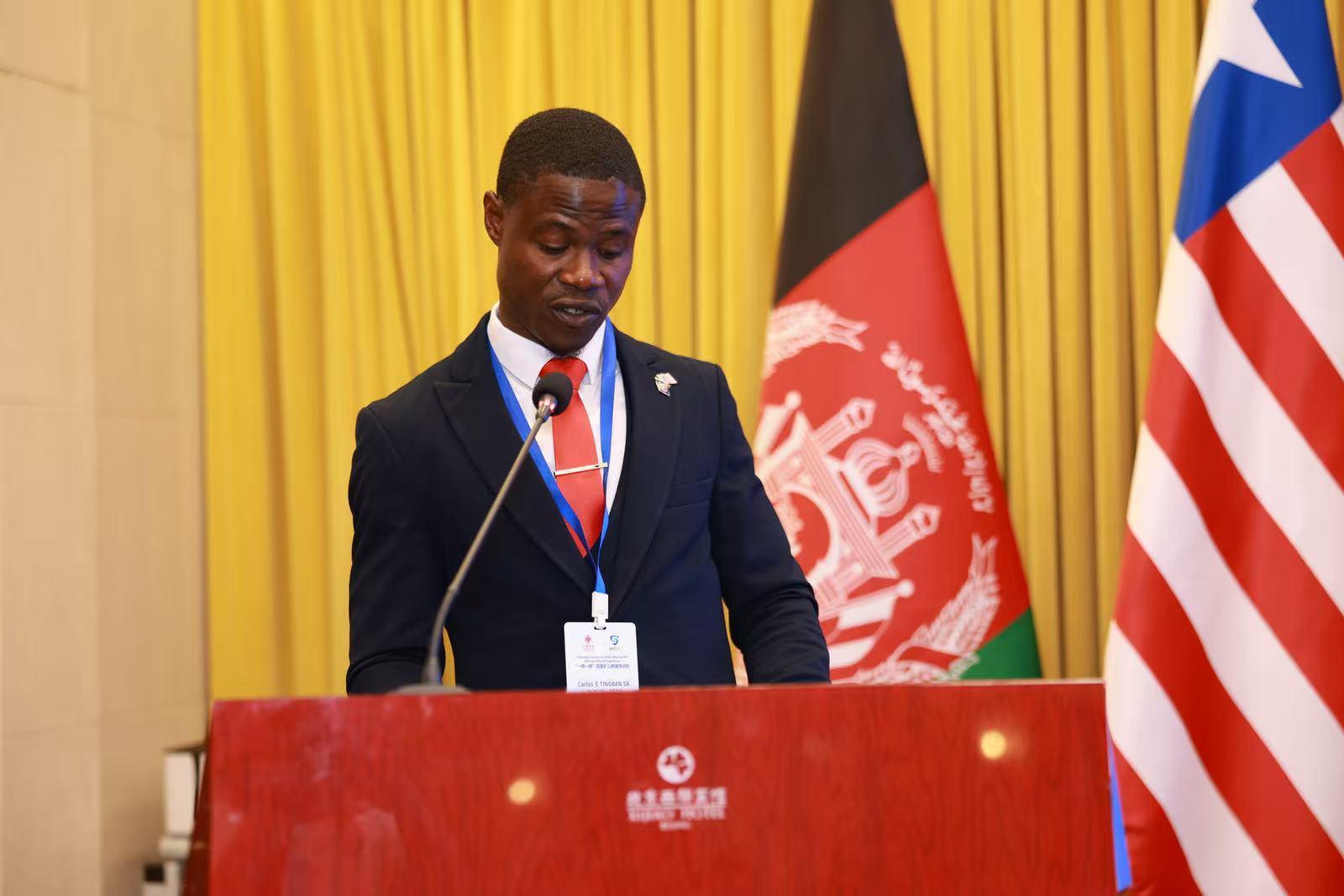Africa-Press – Liberia. Liberia’s Assistant Minister for Mines, Hon. Carlos E. Tingban, Sr., has called on countries participating in China’s Belt and Road Initiative (BRI) to prioritize mine worker safety above economic interests, urging a global shift toward more humane and responsible mining practices.
Speaking at the opening of the Technical Training Course on Mine Rescue for Belt and Road Countries, Hon. Tingban emphasized that no level of economic development should come at the cost of a worker’s life. He delivered the powerful address on behalf of President Joseph N. Boakai and Mines and Energy Minister Wilmot J.M. Paye, expressing Liberia’s deep gratitude to China for its continued partnership in development.
“A mine that cannot protect its workers is a mine that must be transformed or closed,” Minister Tingban stated. “This training course is not only timely but morally essential. We will not build wealth on the backs of the exploited. We will rise, and we will rescue.”
Training for Safety and Solidarity
The training course, organized by the Ministry of Emergency Management of the People’s Republic of China and its International Exchange and Cooperation Center, brings together mining sector stakeholders, emergency responders, and government officials from Belt and Road countries. It focuses on improving technical capacity for mine rescue, safety standards, and emergency response—especially in developing countries where mining is central to economic growth but often fraught with risks.
Tingban described the course as a milestone in advancing multilateralism and internationalism, noting that it embodies “knowledge transfer” that prioritizes lives over profits.
“This is about placing premier on the safety of mine workers through human capital development,” he added. “It is a symbol of principled bilateralism and shared prosperity between nations.”
Liberia’s Safety Challenges and Government Response
In his remarks, Minister Tingban painted a sobering picture of mine safety challenges in Liberia. Thousands of workers, particularly in artisanal and small-scale mining (ASM), continue to operate in unsafe conditions due to poor training, weak oversight, and a lack of protective equipment. He highlighted the widespread use of hazardous materials like mercury and cyanide, the prevalence of child labor, and minimal access to emergency services in remote mining areas.
“Too many mine workers in Liberia are exposed to unacceptable risks,” he said. “These include environmental hazards, lack of PPE, unethical practices, and in some cases, fatalities due to the absence of rescue mechanisms.”
However, the Minister praised President Boakai’s administration and Mines Minister Wilmot Paye for initiating bold reforms, including:
• Crackdowns on illicit mining;
• Stricter enforcement of regulations;
• Mandatory use of safety gear (PPE);
• Enhanced community awareness campaigns;
• Environmental compliance efforts;
• And the development of emergency response protocols.
Yet, Tingban acknowledged that local reforms alone are not enough.
“These steps, while critical, are insufficient without international cooperation and training like the one we begin today,” he asserted.
China-Liberia Partnership: A Model of Mutual Development
Hon. Tingban celebrated the enduring Liberia-China relationship, describing it as a “sovereign partnership” rooted in solidarity rather than dependency. He cited China’s recent support for a national mineral resource survey in Liberia, which has revealed promising new mineral discoveries.
“From infrastructure to healthcare, agriculture to education, and now to mine rescue, China has remained a genuine ally to the Liberian people,” he noted.
He added that Liberia is proud to align this partnership with President Boakai’s ARREST Agenda for Inclusive Development (AAID), which seeks to promote equity, accountability, and sustainability across key sectors.
A Call to Action: Protect, Prepare, and Prevent
Tingban’s address closed with a rousing call to action for all Belt and Road countries:
“To the workers, rescuers, and trainers here today: you are heroes of the working class. May this training be rewarding. The knowledge you gain here must translate into lives saved and disasters prevented.”
He stressed that mine rescue should not be treated as an afterthought but as “the beating heart of a truly humane mining industry.”
“We will not allow our miners to be buried beneath the weight of negligence. This gathering is our declaration—we will rise, and we will rescue.”
Looking Ahead
As countries under the Belt and Road Initiative continue to benefit from China-led investments in infrastructure and resource development, Liberia is urging its fellow partners to align those gains with robust safety standards and human dignity.
The Technical Training Course on Mine Rescue is expected to run for several weeks, offering practical simulations, strategic planning, and cross-country knowledge-sharing in mine disaster response.
For Liberia, the course is not just a training—it’s a turning point in its quest to make mining safer, more just, and more sustainable.
For More News And Analysis About Liberia Follow Africa-Press






